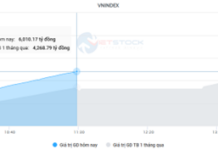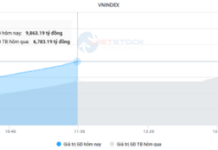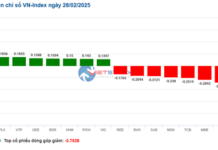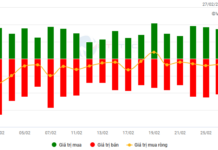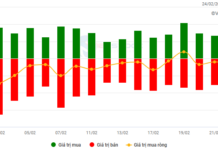High Input Costs: A Concern for Ho Chi Minh City’s Real Estate Market
Ho Chi Minh City is seeking public feedback on a new land price framework as stipulated in Clause 1, Article 257 of the 2024 Land Law. Mr. Nguyen Toan Thang, Director of the Municipal Department of Natural Resources and Environment, affirmed that the adjusted land price framework under the 2024 Land Law has been formulated based on market principles and is in line with market prices.
According to calculations by the Ho Chi Minh City Real Estate Association (HoREA), based on the draft land price framework issued by the Department of Natural Resources and Environment, one district and four districts experienced land price increases of over 30 times in certain locations, with the most significant increase of up to 51 times in Hoc Mon District.

Increased input costs have a ripple effect on housing prices.
Specifically, land prices in District 1 increased by 5 times; District 3 by 4-9 times; District 4 by 11 times; Districts 5 and 7 by 6 times; District 6 by 5-11 times; District 8 by 4-18 times; District 10 by 5-6 times; District 11 by 4-9 times; District 12 by 3-33 times; Binh Thanh District by 5-13 times; Go Vap District by 7-11 times; Phu Nhuan District by 7-8 times; Tan Binh District by 7-12 times; Tan Phu District by 7-17 times; Binh Tan District by 9-17 times; Thu Duc City by 6-35 times; Hoc Mon District by 5-51 times; Cu Chi District by 9-31 times; Binh Chanh District by 2-36 times; Nha Be District by 7-23 times; and Can Gio District by 8-23 times.
Mr. Le Hoang Chau, Chairman of HoREA, affirmed that the draft land price framework does not affect specific land valuation and does not increase land use fees or land lease payments for real estate and commercial housing projects. This is because this group of projects does not apply the land price framework but mainly uses the surplus method to determine land prices as stipulated in the 2024 Land Law.
However, the draft land price framework will impact compensation costs for site clearance as land users will tend to demand higher compensation than before. Increased input costs have a ripple effect on housing and rental prices, as well as land lease costs, rental costs for factories in industrial parks, and investment projects in trade, services, and tourism.
This could lead to an increase in the prices of goods in general and also adversely affect social housing projects where enterprises agree to transfer land use rights to implement projects.
Impact on Buyers
Mr. Ngo Duc Son, CEO of DRH Holding Joint Stock Company, opined that the new land price framework will have the most significant impact on citizens when fulfilling financial obligations, especially when fulfilling obligations such as changing land use purposes or obtaining land certificates for the first time. For businesses, higher land prices mean higher input costs, which will ultimately be reflected in the selling price and directly affect buyers. However, whether direct or indirect, it will influence the operations of enterprises.
In a discussion with Tien Phong newspaper, Mr. Vo Hong Thang, Investment Director of DKRA Group, confirmed that for real estate businesses, the new land price framework results in higher site clearance and compensation costs as it moves closer to market prices. Land use fees and associated taxes and fees will also increase, contributing to higher real estate prices in the future.
However, from a positive perspective, Mr. Thang mentioned that the new land price framework demonstrates the effectiveness of the upcoming 2024 Land Law. Specifically, having a land price framework will shorten the time for project legal procedures, resolving legal obstacles. In terms of site clearance and compensation, getting closer to market prices will make it easier for businesses to negotiate with residents.
Another advantage is the resolution of land use fees. Even if these fees increase, the shortened time for project legal procedures will allow businesses to save on financial costs.
“I expect that the three laws coming into effect soon will streamline project legal procedures and reduce project approval time, allowing businesses to save on financial and management costs, thus offsetting the increase in land use fees and preventing a rise in real estate prices,” said Mr. Thang. “However, whether the time for legal procedures can be shortened depends largely on the law enforcement of the competent authorities. If the new land price framework is implemented but the time for legal procedures remains lengthy, businesses will bear heavier financial burdens, leading to higher housing prices,” he added.
Mr. Nguyen Toan Thang, Director of the Municipal Department of Natural Resources and Environment, assessed that the new land price framework, once applied, will bring many benefits. Compensation and resettlement land prices will be based on this new framework, making real estate transactions more transparent and eliminating the practice of “dual pricing.” State budget revenues will no longer be affected. Regarding concerns that the new land price framework will lead to an increase in real estate prices, Mr. Thang stated that this is not accurate. Previously, real estate transaction prices were much higher than the land prices set by the State. With the adjusted land price framework, prices will be updated based on actual market transaction prices through tax agencies and land registration offices.

